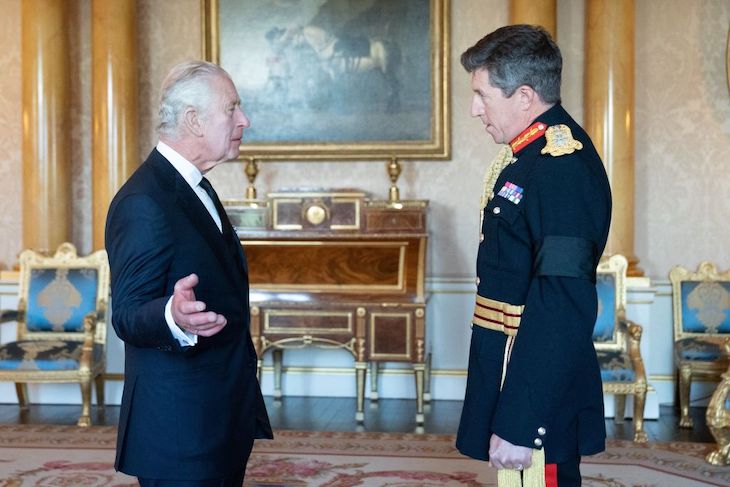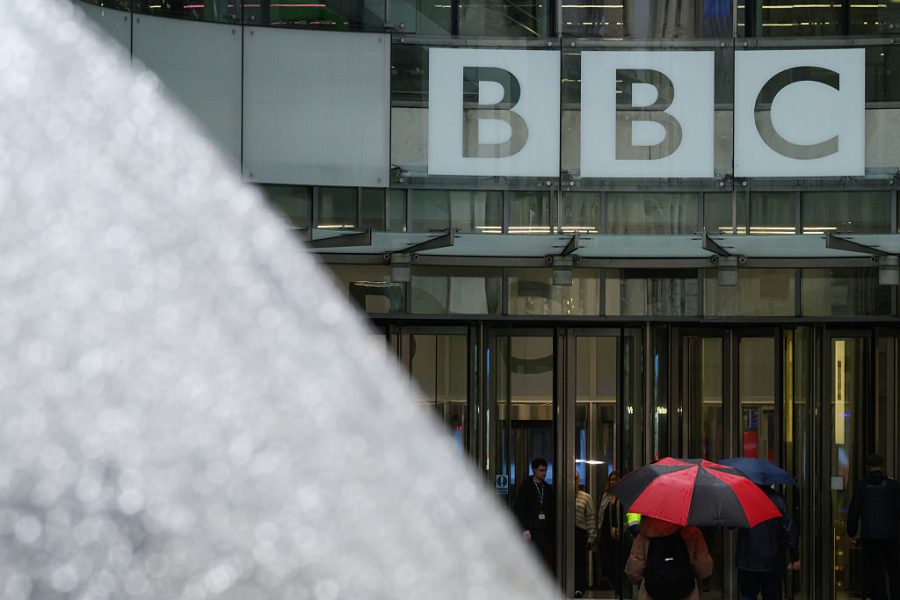Keir Starmer is making a big mistake by cancelling the appointment of one of Britain’s top generals as national security adviser. General Gwyn Jenkins, the ex-vice-chief of the armed forces, was picked for the role by Rishi Sunak in April. Jenkins is a widely-respected military man and was a perfect choice for the job. But Starmer has reportedly axed Jenkins’s appointment and opted instead to re-run the application process.
We can only guess at the motivation, because Downing Street has made no official announcement
Jenkins is, technically, entitled to apply a second time. He is a formidably qualified candidate: a Royal Marines general who was vice-chief of the Defence Staff until June, he had previously served as military assistant to prime minister David Cameron and deputy national security adviser with responsibility for conflict, stability and defence from 2014 to 2017. However, if his first appointment – which was carried out under normal procedures and regulations – has been cancelled it is hard to see why he would suddenly be chosen a second time.
Starmer could come to regret his decision. To overturn a senior official appointment like this, when it has been made properly several months before, publicly and formally announced, and when the individual involved has left his previous position, is absolutely extraordinary. If Starmer is unhappy that Sunak made this appointment, he shouldn’t be: there is no prohibition on governments at the possible or even likely end of their time in office making important choices of officials. Gordon Brown named Sir Mark Lyall Grant as permanent representative to the United Nations only six months before he lost the 2010 election, while Edward Heath appointed a new ambassador to Washington and a new permanent secretary to the Treasury in the last weeks of his administration.
The unavoidable conclusion is that Starmer and his team in Downing Street do not want General Jenkins to be the national security adviser. Many possible reasons have been adduced for this: that a military figure does not have the breadth of experience to fill the ‘national security’ role (though he was deputy NSA); that as an officer in UK Special Forces he concealed allegations of extrajudicial executions by members of the SAS; or that Starmer wants to appoint a more ‘politically loyal’ figure to an important and sensitive position at the heart of government.
We can only guess at the motivation, because Downing Street has made no official announcement on the story which first appeared in the Guardian on Monday night. That in itself is odd – and clumsy. Making such an unusual decision was always going to attract considerable media attention. Anyone with an ounce of political acuity and five minutes’ experience in communications would have advised the Prime Minister’s office to control the narrative by issuing a short statement saying exactly what was happening, when it was happening and what the reasons for it were.
Such a statement would have made all the more sense given the ongoing media coverage of out-of-the-ordinary civil service appointments made so far by the new government, with Emily Middleton, a former adviser to Peter Kyle in opposition, becoming a director general in his Department for Science, Innovation and Technology; Ian Corfield, a Labour donor, being appointed a director in the Treasury then giving up the role within weeks; and Jess Sargeant moving from party think-tank Labour Together to a position in the Cabinet Office’s Propriety and Constitution Group. But the government seems to think it should not have to explain itself when questions like these are raised.
This morning the Prime Minister gave an exhaustively trailed speech in the Downing Street rose garden to set out his programme for the autumn. When questioned by journalists, he declined to explain why he had cancelled Jenkins’s appointment as national security adviser, and was dismissive of allegations made by the opposition: ‘I’m not really going to take lectures on this from the people who dragged our country so far down in the last few years.’ A politician relying on ‘not taking lectures’ is already waist-deep in hubris. What Starmer would say about the issue was that ‘there will be an open and transparent process, and no I’m not going to publicly discuss individual appointments’.
That is not good enough. There is no reason a Prime Minister should not discuss individual appointments – they are fully enough discussed when political advantage is perceived – and it is all the more incumbent on him to ‘discuss’ them when they involve such unusual decisions as (effectively) sacking a four-star general from one of Whitehall’s most senior security jobs.
Starmer insists that he is putting ‘the best people into the best jobs’. How can we possibly know that to be true, when every detail has to be dragged out of them like recalcitrant teeth? Labour has made some controversial appointments, and it can hardly be surprised there is speculation about its motivation when it remains monkishly, or arrogantly, silent. This is not a complex or multifaceted question, let alone an impertinent one: Prime Minister, why have you binned your national security adviser?








Comments